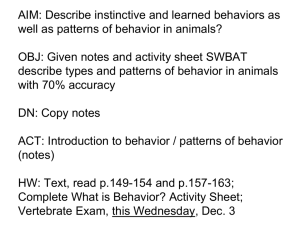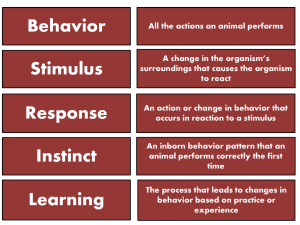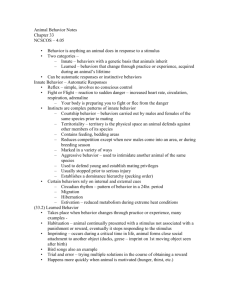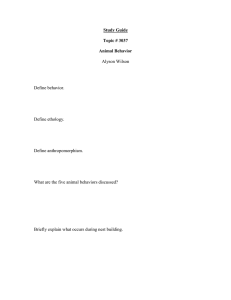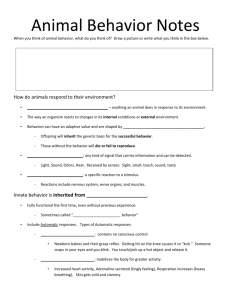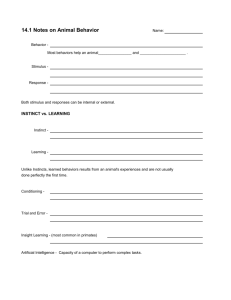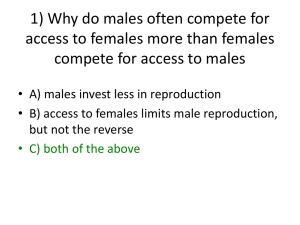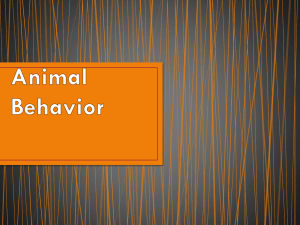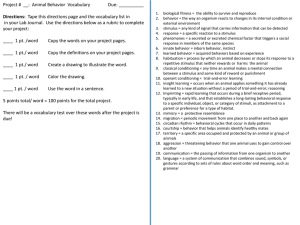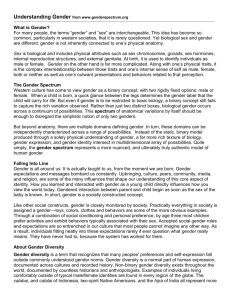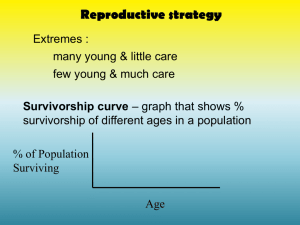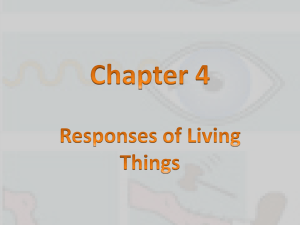Animal Behavior Notes
advertisement
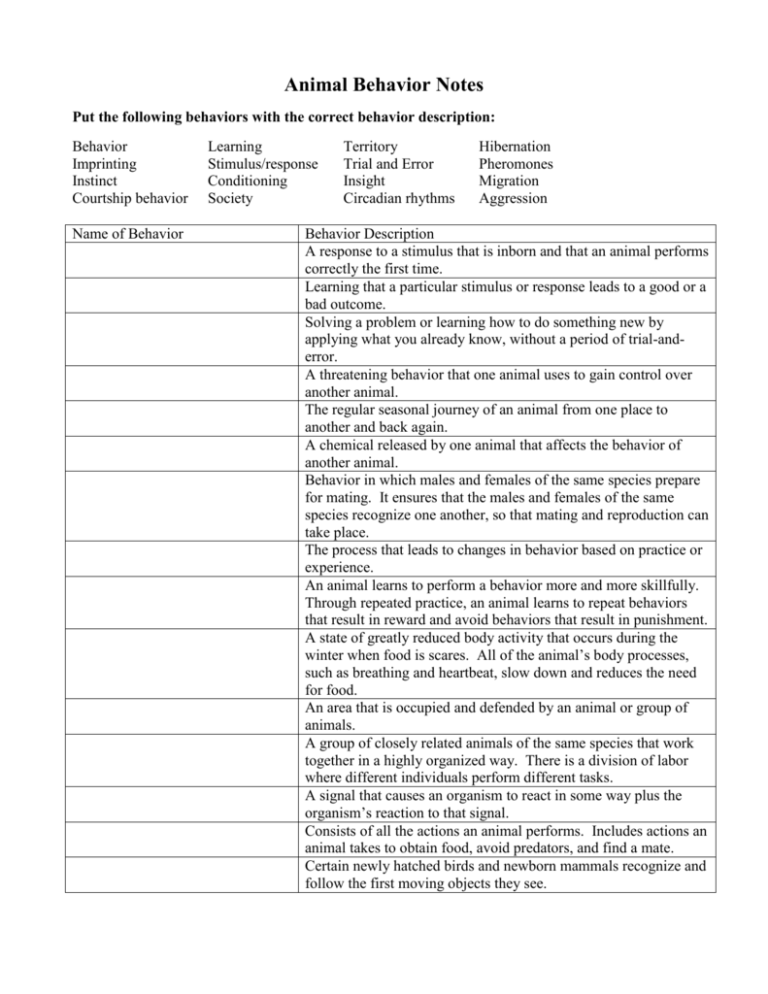
Animal Behavior Notes Put the following behaviors with the correct behavior description: Behavior Imprinting Instinct Courtship behavior Name of Behavior Learning Stimulus/response Conditioning Society Territory Trial and Error Insight Circadian rhythms Hibernation Pheromones Migration Aggression Behavior Description A response to a stimulus that is inborn and that an animal performs correctly the first time. Learning that a particular stimulus or response leads to a good or a bad outcome. Solving a problem or learning how to do something new by applying what you already know, without a period of trial-anderror. A threatening behavior that one animal uses to gain control over another animal. The regular seasonal journey of an animal from one place to another and back again. A chemical released by one animal that affects the behavior of another animal. Behavior in which males and females of the same species prepare for mating. It ensures that the males and females of the same species recognize one another, so that mating and reproduction can take place. The process that leads to changes in behavior based on practice or experience. An animal learns to perform a behavior more and more skillfully. Through repeated practice, an animal learns to repeat behaviors that result in reward and avoid behaviors that result in punishment. A state of greatly reduced body activity that occurs during the winter when food is scares. All of the animal’s body processes, such as breathing and heartbeat, slow down and reduces the need for food. An area that is occupied and defended by an animal or group of animals. A group of closely related animals of the same species that work together in a highly organized way. There is a division of labor where different individuals perform different tasks. A signal that causes an organism to react in some way plus the organism’s reaction to that signal. Consists of all the actions an animal performs. Includes actions an animal takes to obtain food, avoid predators, and find a mate. Certain newly hatched birds and newborn mammals recognize and follow the first moving objects they see.
